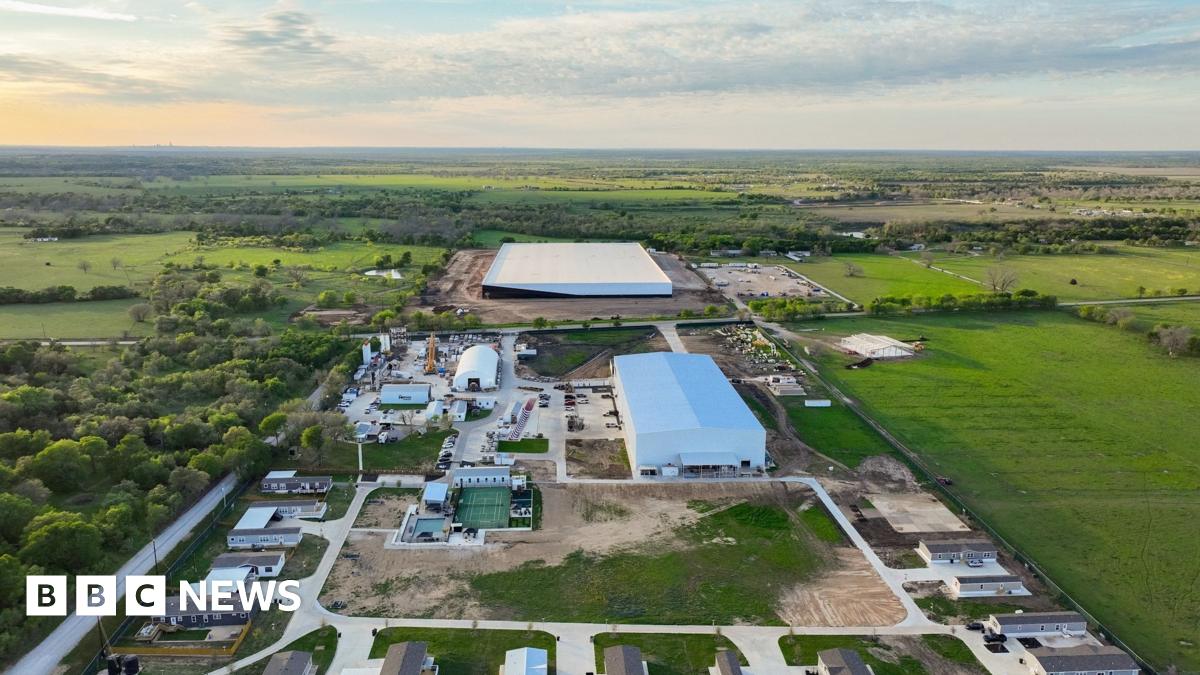Texas Gigafactory: Unveiling Musk's Free Trade Hub – A New Era for Electric Vehicle Production?
Tesla's ambitious Texas Gigafactory is more than just an electric vehicle (EV) production plant; it's rapidly evolving into a significant free trade hub, reshaping the landscape of the American automotive industry and potentially influencing global EV production. This development marks a bold strategic move by Elon Musk, potentially impacting not only Tesla's bottom line but also the economic future of Texas and beyond.
Beyond the Assembly Line: A Multifaceted Operation
The Gigafactory isn't merely assembling vehicles. It's a sprawling complex encompassing battery cell production, advanced manufacturing technologies, and now, increasingly, a central role in international trade. This vertical integration minimizes supply chain vulnerabilities and allows Tesla to control costs more effectively. This integrated approach is a key differentiator setting Tesla apart from traditional automakers.
- Battery Production: The Gigafactory's battery production capabilities are crucial to Tesla's growth strategy. Producing its own battery cells reduces reliance on external suppliers and allows for faster innovation in battery technology.
- Advanced Manufacturing: Tesla's focus on automation and cutting-edge manufacturing processes is evident in the Gigafactory. This allows for higher production efficiency and contributes to the overall cost-effectiveness of its EVs.
- Free Trade Zone Integration: The strategic positioning of the Gigafactory within a free trade zone significantly reduces import and export costs, making it a highly competitive location for both production and distribution. This allows Tesla to optimize its global supply chains and potentially expand its export markets.
Economic Impact: A Boon for Texas?
The Gigafactory's emergence as a free trade hub is already having a significant impact on the Texas economy. The plant has created thousands of jobs, boosting employment in the region. Furthermore, the influx of investment and increased economic activity are stimulating growth in related industries, such as logistics and transportation. This positive ripple effect underscores the potential for substantial long-term economic benefits for the state.
Global Implications: A Shift in the EV Landscape?
Tesla's success in integrating its Gigafactory into a free trade hub could inspire other EV manufacturers to adopt similar strategies. This shift could lead to a significant reorganization of global EV production networks, with more manufacturers seeking out locations with similar advantages. This could, in turn, reshape international trade patterns and competition within the EV industry.
Challenges and Future Outlook
While the potential benefits are substantial, challenges remain. Maintaining a stable and efficient supply chain, navigating potential trade disputes, and ensuring environmental sustainability are crucial for the long-term success of the Gigafactory's free trade hub ambitions. Overcoming these hurdles will be key to realizing the full potential of this ambitious undertaking.
Conclusion: A Game Changer?
The transformation of Tesla's Texas Gigafactory into a free trade hub represents a significant strategic shift for the company and the broader EV industry. Its success could redefine how EVs are manufactured, traded, and consumed globally. While challenges exist, the potential benefits—both for Tesla and the wider economy—are undeniable, making this development a compelling story to watch unfold. The coming years will be crucial in determining the true impact of this bold venture.
Keywords: Tesla Gigafactory, Texas Gigafactory, Elon Musk, Electric Vehicles (EV), Free Trade Zone, Automotive Industry, Supply Chain, Manufacturing, Economic Impact, Global Trade, Battery Production, Texas Economy, EV Production, Innovation.

